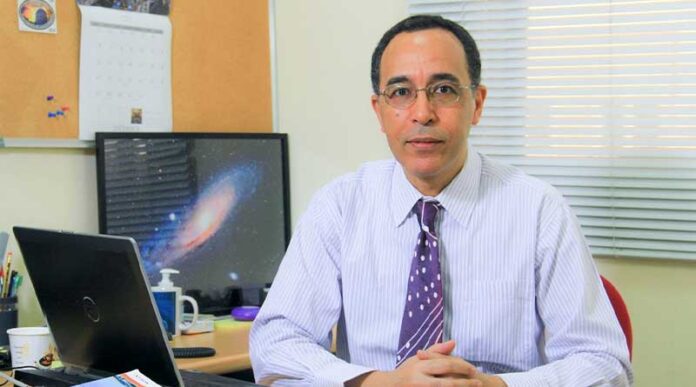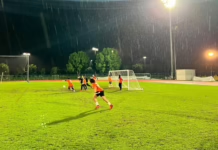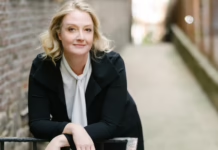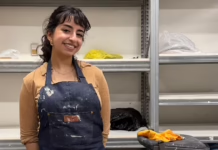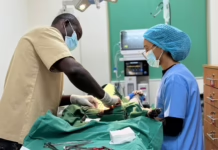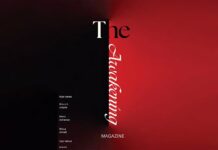By Salma Ghalwash
Twenty years.
That is the time Dr. Nidhal Guessoum, an astrophysicist and professor at the American University of Sharjah, has spent harmonizing the relationship between Islam and modern science.
“I wanted to show young people that all of the science you learn today does not necessarily conflict with your religious identity or with the things you learned at home, in mosques and through our society and culture,” he explained.
Guessoum notes that his “side expertise” adds to his research in high-energy astrophysics. This subfield of astrophysics focuses on powerful phenomena in the universe, which produce high-energy radiation like gamma rays or x-rays. As large stars produce energy, they run out of fuel and collapse. These stars’ lifetimes end with an explosion. Big explosions are called “supernovas” or “hypernovas.” When two dead stars collide, they cause a smaller explosion called a “kilonova.”
For the past five years, Guessoum has involved undergraduate students in his research on understanding and observing these atypical stars.
“It’s a very pleasing line of research,” he says, referring to his students’ excitement and pride when they have produced, presented and published papers internationally.
Guessoum expects that astronomy in the Arab Muslim world will soon flourish. Previously, he has urged Arab Muslim countries to reclaim their golden past with an “astronomy renaissance.” With more astronomers and more observatories in the region, he is glad to report that research is making progress.
“A lot of people think, ‘Oh, science and religion, they are different and separate.’ I try to show that you don’t have to give up one or the other,” says Dr. Nidhal Guessoum.
Although his schedule is busy with research, lectures and seminars, he always finds time to connect with his students. According to Guessoum, who has published four books and more than a hundred papers, this is simply the “life of a professor.”
Born and raised in Algiers, the capital of Algeria, Guessoum was surrounded by hundreds of books on language, literature and philosophy at home. At that time, there was also a rise in Algerian national sentiment for advancing science and technology. He credits his intellectual development to growing up in an environment with a rich mix of disciplines. He had an “interest in literature,” which allowed him to consolidate his love for the Arabic language. Despite his parents’ encouragement to read stanzas by the Abbasid Arab poet Al-Mutanabbi or books by Egyptian writer Taha Hussein, he and his siblings chose science.
Before specializing in physics, he originally wanted to pursue math. For Guessoum, math was akin to playing a “video game” or solving a puzzle, where each question grew in complexity and intrigue. In his first year at university, he took courses in chemistry and physics. Guessoum became fascinated with learning about atoms and molecules, calculating gravity and orbits. In physics, he could see math applied to reality, from the smallest to the largest of scales.
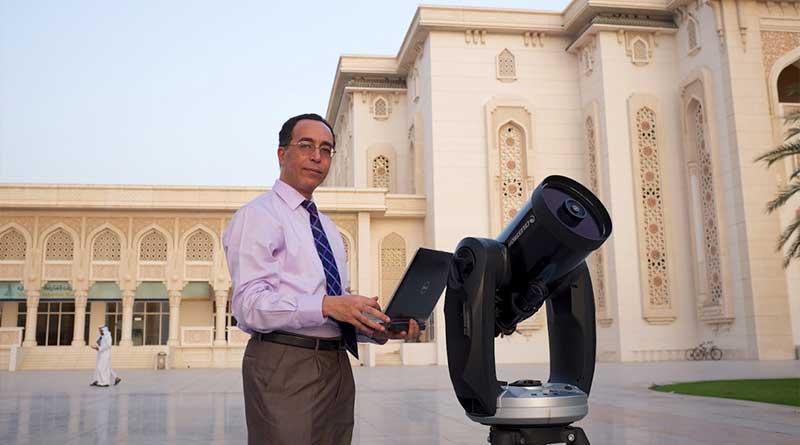
In the following years, he went on to complete his doctorate in astrophysics in the United States. He learned a third language, English. Soon after, he spent two years researching at NASA.
“Going to the U.S. was a life-changing moment,” the professor says.
Recently, he released a short book with Cambridge University Press about “Islam and Science.” Guessoum wrote it with his colleague, a non-Muslim Italian friend who teaches in Morocco. It addresses topics like artificial intelligence, genetic engineering, consciousness and cosmology. In around 75 pages, the booklet succinctly explains current and future topics as well as their impact on religious viewpoints.
“My society around me is full of religion, full of Islam,” he says, “but at the same time, science has become so dominant in our lives.”
Guessoum points out that our interview through Google Meet would not be possible without science or satellites. Space technology, i.e. satellites, is used daily for navigating with GPS, watching TV channels that are relayed by satellites, getting weather maps and other such useful applications, added Guessoum.
The Algerian astrophysicist is a high-profile advocate for not only embracing technology but also situating astronomy, physics and science in people’s broader knowledge. Today, Guessoum has over 481,000 subscribers on YouTube and has made around 220 episodes. He aims to make it accessible for Arabs to understand a wide array of concepts in their native language. It all started nine years ago when a student, who took his astronomy course, suggested starting a series titled “Al Kawn” meaning “the cosmos” in Arabic. Once Guessoum has a set narrative, the camera rolls and he records the video in one take.
“Education needs to evolve and we need to fully adapt now as we have new tools,” he explains, hoping that people find a way to further their knowledge about Islam and science in a rapidly-changing technological landscape.
“I tell people to try to befriend science, learn it, enjoy watching videos on it, practice it as a hobby, etc. Science should be an integral part of our life and culture.”



